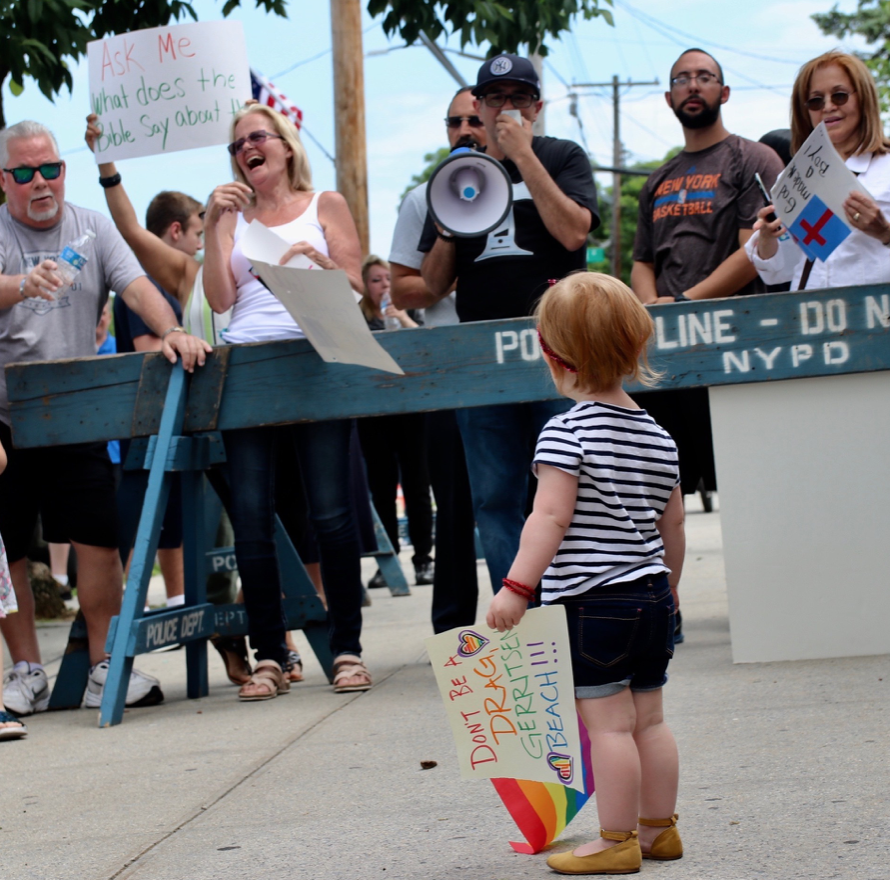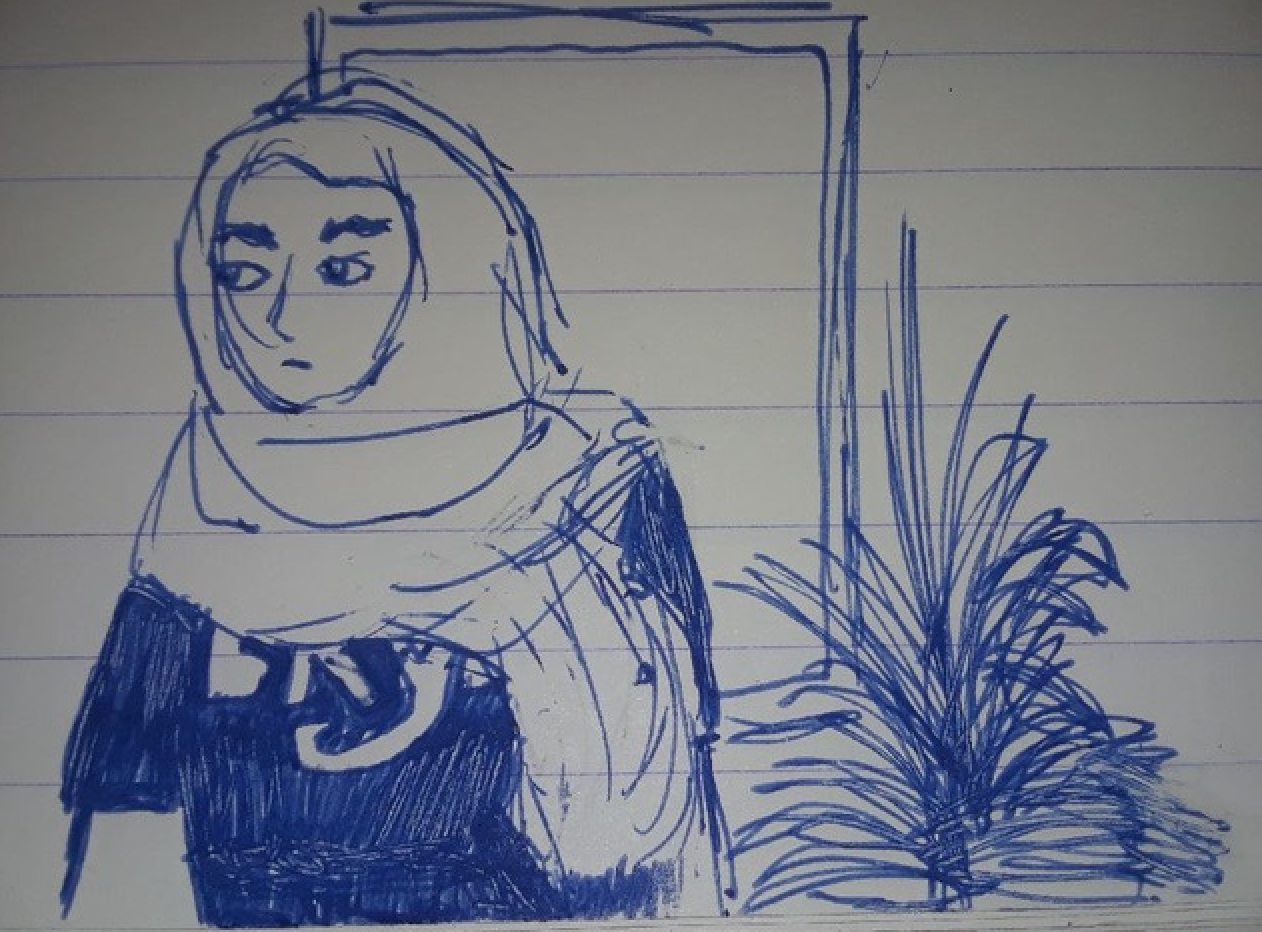Farewell, for now.


Today is my last day at Bklyner. I started in May 2017 when I had just finished up my sophomore year at Brooklyn College. I was desperate to write and Liena Zagare, for some reason, gave me a chance, and for that I am grateful.
These past three and a half years were a wild ride. I learned a lot about writing, about the borough I call home, and about life. I learned that I love telling stories about people and faith— and through writing, I became closer to my own.
I learned that there are a billion ways to put words together, a billion ways to tell a story. And I learned that every single person has a story to tell, but there are not enough resources to write them. That is why it is so important to support local news and subscribe, so we can continue writing about what matters most.
I plan on writing forever, but for now, here are some of my all-time favorite stories I have written in no particular order except for the first one.
My absolute favorite story is about my baba. Why is it my favorite? Because he is my favorite person and I got to ask him all the questions in the world without him complaining about me asking too many questions (Ok, maybe he complained a little tiny bit).
During the very beginning of the pandemic, when the city was not yet in full lockdown, my dad continued to go to work. He had been a yellow cab driver for the past 30 or so years (now he works at Lyft). People were staying at home, but drivers were continuing to go out to try and make some money. But there was no work, therefore there was no money. My dad would often vent out his frustrations at home, so I decided to write about it. And it turned out, it was the story of hundreds of cab drivers across the city.
Sheikh Osman Adam’s shop in Bed Stuy caught on fire at the beginning of March. It was the only source of income for this community leader who has helped many neighbors. After the fire, he was in the hospital for the coronavirus. Now, he’s trying to raise money to get his store back up and running so that he could support his family during this pandemic. I was not able to go out a lot these past few months, but I did go out just to meet him. In real life, he is just how words describe him in the story; a gentle and kind man with so much faith who just wants to do good.

At Bklyner, I tried to write the stories I never grew up reading, about communities that were barely covered. Like my own community.
Little Pakistan, it’s called (literally, you can go see the street sign yourself). Do you know there’s a Pakistani American Youth Society? It was co-founded by community leader Kashif Hussain. Since the beginning of the pandemic, PAYS (along with other organizations) launched food carts to distribute hot halal food to anyone who needs it. To this day, PAYS continues to deliver food to hundreds of people on Newkirk and Coney Island Avenues.
Did you know in 2018, the annual Independence Day Mela on Coney Island Avenue was canceled for the first time ever because of local feuding? In 2019, it came back. Did you know neighbors are passionate about their local Makki Masjid? They’re so passionate that they all want ownership—to the point where it went to court. I remember going inside one of the many jewelry shops on Coney Island Avenue to speak to Naseem Khan Alizai, who told me all about gold and diamonds. Little Pakistan is also a place for protest. Like the Jammu and Kashmir one in 2019. Like when everyone gathered in front of Makki Masjid after the horrific Christchurch attack.
Little Pakistan is home to People in Need, a non-profit organization run by the incredible Nowshin Ali. This woman runs her own afterschool program for immigrant children, a weekend session for immigrant mothers to learn basic things, and she runs her own restaurant Jalsa Grill & Gravy. Now, she spends her days providing mutual aid to neighbors— turning her restaurant into a pantry.
There was a lot of death in this pandemic. I would talk to people who loved them the most, and then I’d get really upset because why didn’t I write about them when they were alive? Like Dr. Ahmad Jaber, for example. What an extraordinary man he was. Like Humayun Butt and Shafiq Hussain who died of COVID-19.
In the worse of the pandemic, Muslims and Jews were struggling to observe burial traditions. When a Muslim or Jew dies, their body is taken to a funeral home where it is washed in a particular way, in accordance with the religion, and then shrouded before the funeral which has to happen within hours of death. In Islam, it’s called the janazah, where there is a prayer service and the body is buried. In Judaism, a eulogy is delivered, prayers are read, and the body is buried. But fulfilling these sacred traditions became complicated during the pandemic. It was one of my favorite stories to work on. Because though there are a lot of differences, we are more similar than we believe.

I learned very quickly that it is a car crash, not a car accident. And there were plenty of them these past few years. Seven-year-old Sama Ali was riding her scooter on September 28, when a man driving a truck struck her and killed her. A week later, there was a community vigil to call for safer streets. Vigils for little kids are always difficult. How can you do your job with a straight face when a grieving mother is crying for her child? It was the same sound I heard when I went to 10-year-old Enzo Farachio’s vigil. Enzo was waiting for the bus stop on his way home from school when a driver mounted the sidewalk and struck him, killing him in the process. In November 2019, several community members and I took the saddest walking tour of Kensington— stopping at every intersection where a fatal crash had occurred. But I also met Families for Safe Streets—a group of strong people who lost loved ones to traffic crashes, advocating for safer streets.
In the media, Muslims are often shown in a bad light. But not in Bklyner. Alhassan Umar, a 23-year-old Bronxite spoke to me about escaping his Muslim identity and then embracing it, what his Blackness means to him, and his speech at the Barclays Center that went viral. Did you know three Black Muslim women organized a massive Black Lives Matter protest where they marched from Bay Ridge to the Barclays Center? Have you heard of Mohamed Bahe? He’s the founder of Muslims Giving Back located at Sunset Park. They distribute food to the homeless every weekend and have been doing it consistently for years. Did you know Young Muslims is the nation’s largest Muslim youth organization? They have neighbor-nets all throughout the country and one of them is located in Midwood. Before the pandemic, they’d gather at Masjid Quba every weekend for a halaqah and would then hang out and bond—brotherhood and sisterhood being very big concepts.
In a world where Muslims are shown as the bad people, we, young Muslims, take it upon ourselves to change that—and sometimes, that comes through writing.
I encourage you to always ask questions to everyone you encounter. Strike a conversation with your bodega owner. Ask your neighbor how they’re doing. Make your cab driver tell you their funniest passenger experience. And then write it down.
Bklyner is always looking for new writers from every community. You offer a unique perspective that is beyond valuable— especially in the news industry. Sometimes you may feel that you don’t have a voice because of who you are and where you come from, but you absolutely do. And it matters.
And when you write, make sure you do so without sacrificing your faith and all you believe in. All you have to do is pitch a story to Liena (Liena@bklyner.com). It’s as simple as that. Once you start writing, you will find that you can’t stop. It’s a wonderful, addictive force. And I know that I won’t stop either. I hope to be back freelancing with Bklyner. I don’t know where my next adventure will take me, but I do know that wherever it is, I will be telling stories.




